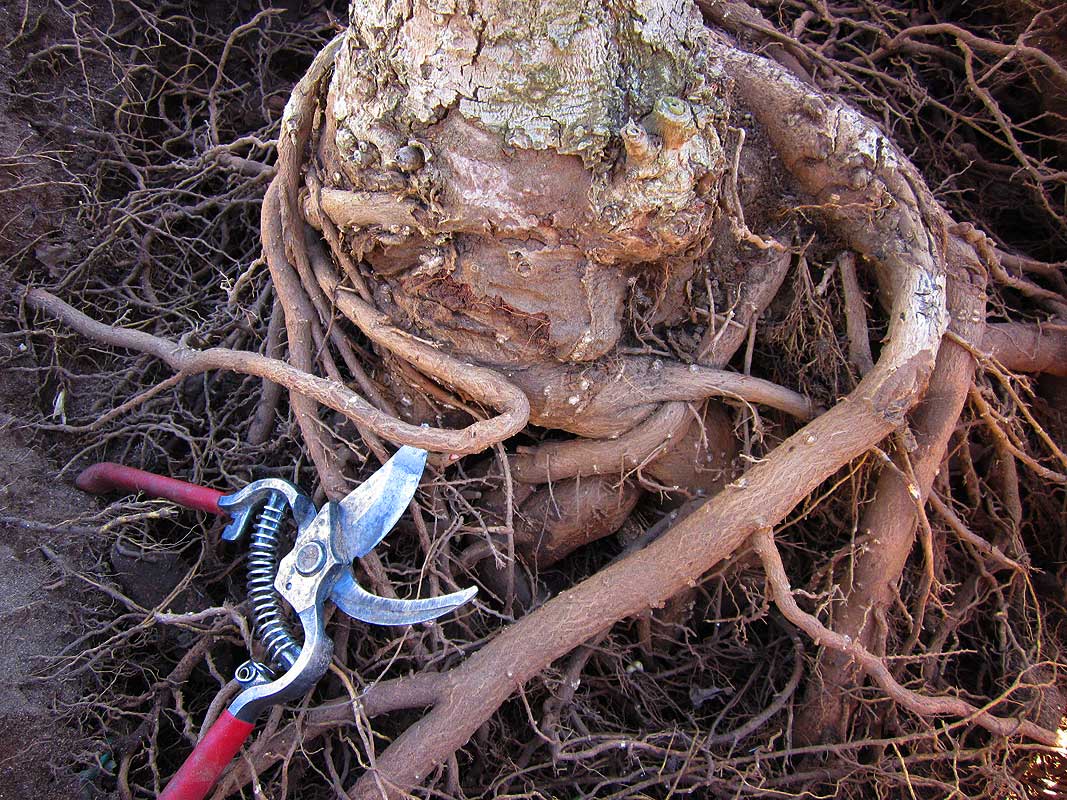
CITYWIDE — More than 200 street trees that are dead or dying will be removed later this month, work that was put on hold while city officials scrutinized a multi-million dollar contract with West Coast Arborists, the private company hired to maintain Santa Monica's urban forest.
Public Works Director Martin Pastucha said roughly seven to eight months of work was put on hold during the review of the contract, which was prompted by concerns raised by a city arborist and members of the Urban Forest Task Force regarding the quality of trees planted by West Coast Arborists.
Many trees died shortly after being planted, some from a condition known as root girdling. When that occurs, a tree's roots are not allowed to grow properly and instead wrap tightly around the tree's trunk, choking it to death.
"We are going to be documenting the conditions of the trees as much as possible to see what were the reasons for the decline," said Pastucha, whose department took over management of the 35,000-plus street trees from Community & Cultural Services following an independent report that questioned City Hall's practices regarding the monitoring of West Coast Arborists' work.
That review found no wrongdoing, just bad accounting practices.
West Coast was hired in 2011 by the City Council for close to $8 million for five year's worth of work. That work includes replacing dead trees and pruning healthy ones.
Trees slated for removal include Canary Island date palms, Japanese maples, London planes, sycamores, jacarandas and Brazilian pepper trees. Some will be replaced by the same species while others will not, according to public notices dated Oct. 9. Residents have 14 working days to appeal the removals by completing forms available online at www.santamonicatrees.com.
In response to concerns raised earlier this year, city officials this summer hired two interns to walk streets and create an inventory of street trees. Officials will continue to add to that list as they replace trees.
In addition, Pastucha is close to hiring a new community forester to take over management of street trees. He is also reworking aspects of the contract with West Coast Arborists to better align with national best practices.
"It's more tightening up the language and specifications to ensure much clearer, better laid out plans for their protection as well as ours," Pastucha said. "To the extent that we can attribute [tree deaths] to the contractor, we'll have them take responsibility of replacement, go through that and see if the trees are under warranty."
Members of the Urban Forest Task Force told the Daily Press that they are encouraged by Pastucha and his staff's handling of their requests for more information and better supervision over West Coast.
"There are still some outstanding issues that will have to wait for the new urban forester to be hired, but we feel that public works has heard our complaints, taken them seriously and laid out a long-term plan for addressing them," said Grace Phillips, chair of the task force.
kevinh@www.smdp.com









